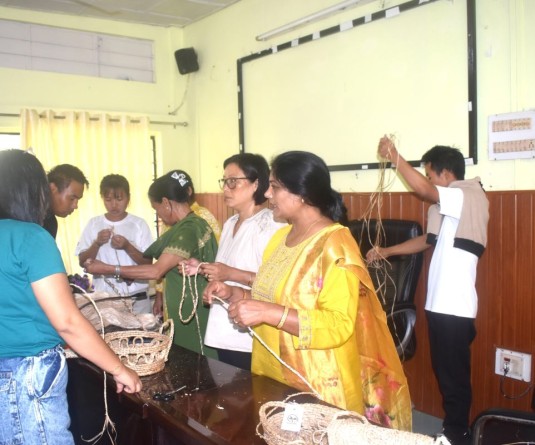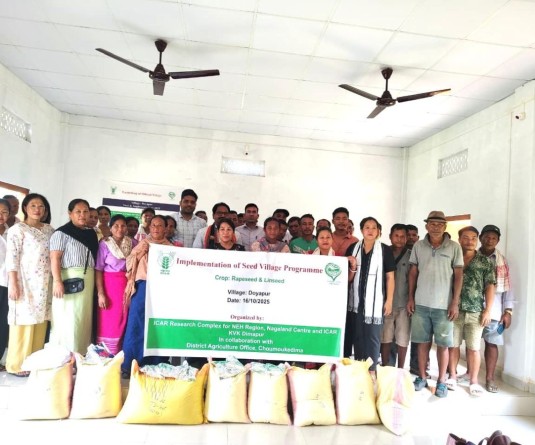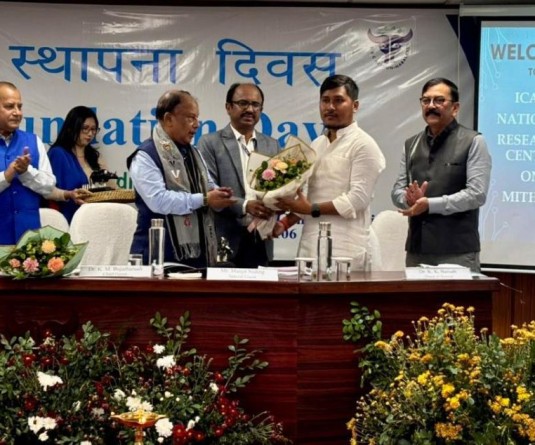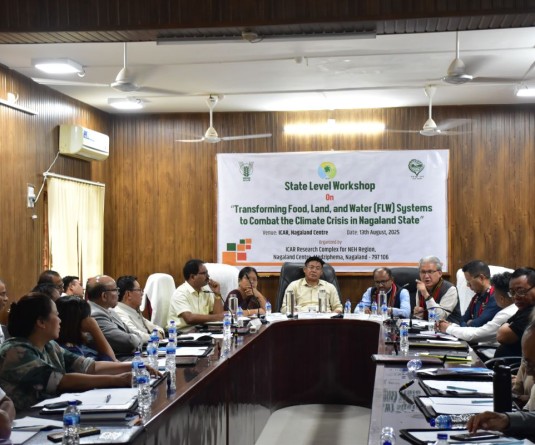
Dr Bendangla Imsong and Dr Phool Kumari
A Community Seed Bank (CSB) is a locally managed, community-based initiative focused on conserving, restoring, and distributing traditional seed varieties, particularly indigenous and climate-resilient ones. These banks are essential in promoting seed sovereignty, preserving biodiversity, and supporting sustainable agriculture, especially among small and marginal farmers. A Community Seed Bank is:
• A local repository of seeds managed by farmers or community groups.
• A tool to conserve indigenous varieties and improve resilience against climate change.
• A system to exchange seeds among farmers without relying on commercial seed markets.
Objectives:
• Preserve indigenous and heirloom seed varieties.
• Promote organic and traditional farming.
• Enhance farmers’ access to diverse seeds.
• Foster community participation in seed governance.
How They Work:
1. Farmers donate or borrow seeds.
2. Seeds are documented, stored, and preserved.
3. Borrowers return seeds after harvest, often with a small interest in the form of additional seeds.
4. Regular seed festivals, workshops, and trainings are organized.
Benefits:
• Agrobiodiversity conservation: Helps prevent the extinction of local crops.
• Food and seed sovereignty: Reduces dependence on hybrid and genetically modified seeds.
• Community empowerment: Encourages farmer-led innovation and self-reliance.
• Climate resilience: Traditional seeds often withstand harsh weather better.
Challenges:
• Lack of technical knowledge or storage infrastructure.
• Limited funding or institutional support.
• Difficulty in scaling beyond small communities.
How to Start a Community Seed Bank?
Setting up a CSB isn’t just about collecting seeds; it's about empowering a community. Here's a step-by-step guide:
1. Community Mobilization
• Identify farmers, especially elders or women, who have knowledge of traditional seeds.
• Hold community meetings to explain the concept and benefits of a CSB.
• Form a core group or committee (could be a self-help group or farmers’ collective).
2. Seed Collection & Documentation
• Collect local and indigenous seed varieties (millets, pulses, vegetables, rice, etc.).
• Record data: source, variety name, traits, ideal growing conditions, etc.
• Involve local experts, elders, and agricultural scientists if possible.
3. Storage Infrastructure
• Build a small storage facility with climate control for seeds (mud houses or cool storage units work well).
• Use airtight containers, clay pots, or traditional storage methods.
• Label everything properly.
4. Seed Lending System
• Set up a seed loan policy: farmers borrow seeds before the growing season and return them post-harvest with "interest" (more seeds).
• Maintain a ledger or seed register.
5. Trainings & Awareness
• Host workshops on organic farming, seed treatment, and biodiversity.
• Celebrate Seed Festivals (Beej Utsav) to exchange seeds and knowledge.
6. Sustainability & Funding
• Look for support from:
o Local NGOs
o Krishi Vigyan Kendras (KVKs)
o NABARD or state agriculture departments
o CSR programs of local companies
o Encourage small donations or membership fees from beneficiaries.
Real-Life Examples & Success Stories in India
1. Deccan Development Society (DDS), Telangana
• Women in Zaheerabad formed seed banks for millets.
• Revived over 80 traditional varieties.
• Created a network of women-led sanghams (village groups).
2. Navdanya, Uttarakhand
• Over 150 community seed banks across 22 states.
• Revived hundreds of indigenous rice, wheat, and millet varieties.
• Combines seed conservation with ecological farming training.
3. GREEN Foundation, Karnataka
• Works with over 1000 farmers.
• Focuses on dryland farming, seed diversity, and women’s empowerment.
• Seeds stored using local traditional techniques like neem leaf lining and ash.
4. Vaagdhara, Rajasthan
• Tribal community-led initiative.
• Focuses on millet revival and nutrition security.
• Combines traditional knowledge with modern documentation tools.
Dr Bendangla Imsong is CTO (Plant Breeding) and Dr Phool Kumari is Senior Scientist cum Head, KVK Dimapur






